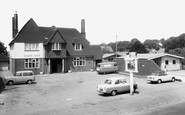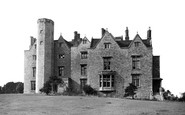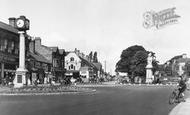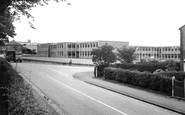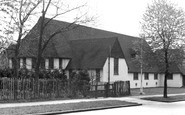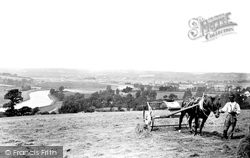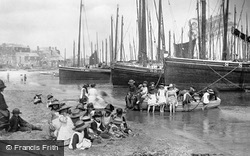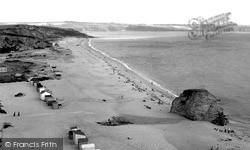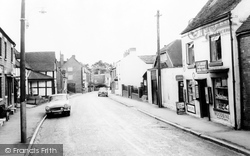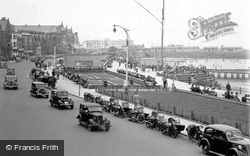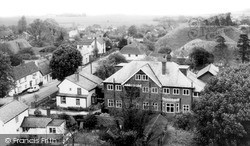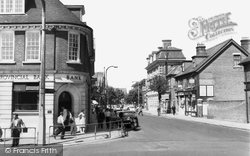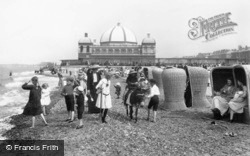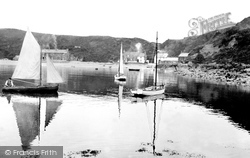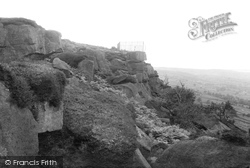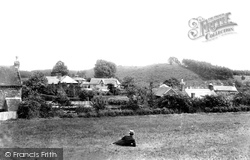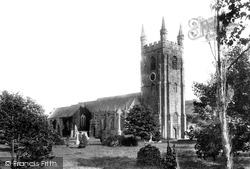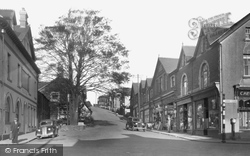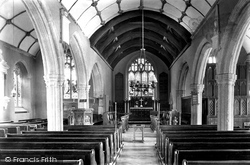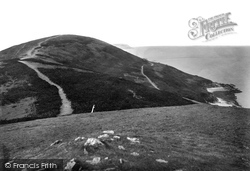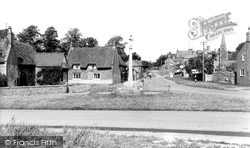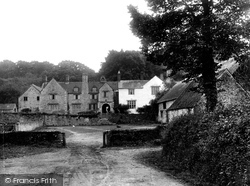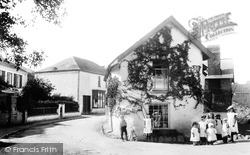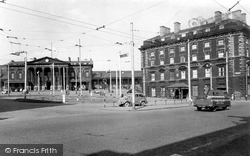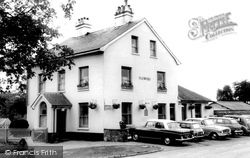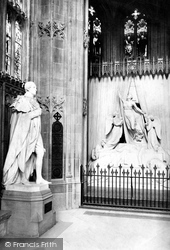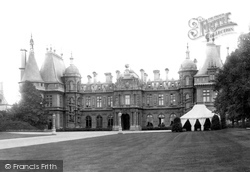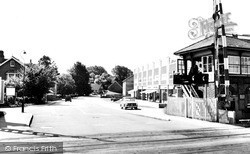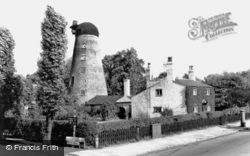Places
4 places found.
Those places high-lighted have photos. All locations may have maps, books and memories.
Photos
59 photos found. Showing results 81 to 59.
Maps
49 maps found.
Books
Sorry, no books were found that related to your search.
Memories
233 memories found. Showing results 41 to 50.
Padnell Avenue Etc.
We were the first family to move into the newly built Padnell Avenue Council Estate, moving there in around 1947, our house was one of a pair on the corner of Winscombe Avenue. Where the Council flats are now situated was ...Read more
A memory of Cowplain by
Ww2 Memories At St.Catherine's
I boarded at St. Catherine's from 1942 until 1948, which I believe was connected to Middlesex County Council during that time. I was 3 years old when I started, my home was in Victoria Square, Clifton and my ...Read more
A memory of Almondsbury in 1942 by
My Childhood In Erith
My sister Wendy and I went to school at The Sacred Heart Convent on Erith Rd in the early '50s. I remember being taught by nuns in traditional nun's habits. But one teacher who wasn't a nun I remember because she was called ...Read more
A memory of Erith in 1954 by
Lawrence Weston Comprehensive School
I attended Lawrence Weston Comprehensive School from September 6, 1963 until February 1969. Although I had passed my 11 Plus examination very highly (highest in the southwest of England) and wanted to ...Read more
A memory of Lawrence Weston in 1963 by
What An Education!
It's pity that there are no images of Cannock's schools on this archive. Cannock actually had a number of schools long before many other towns. Primary education for all didn't come into effect until the Education Act of 1870 made it ...Read more
A memory of Cannock by
Cambridge Terrace Shops
Bush Hill Park had so many interesting characters back in the 70's when I was young. I loved going to the shops in Cambridge Terrace, just off Dehli Road. My favourite one was Stewart's, the sweet shop, owned by ...Read more
A memory of Bush Hill Park in 1972 by
Bromley High Street
I remember the coffee smell as one wandered up the high street. Someone on this memory board has asked what was it called. It was called: Coffee Importers, because that was what they did. You could buy beans or have them ground ...Read more
A memory of Bromley by
St Bedes
I was born and bred in Ormskirk and attended St Anns School in Hants Lane. When I was 12, St Bedes School opened and I went there. I remember it being very big compared to St Anns. Mr Collange was the Headmaster, other teachers were ...Read more
A memory of Ormskirk in 1957 by
My Local Church
This is the church in Warren Road where l was christened in 1956, and sat through many a Sunday morning service. The vicar's name was Mr Carey. I used to attend monthly church parades with the Brownies and then the Guides, and my ...Read more
A memory of Nork in 1956 by
One Day At A Time
A precised extract from the chapters in my biography relating to wartime evacuation, and particularly to Garnant. I stared morosely out of the window and watched the landscape slip by as the steam train chugged its way through ...Read more
A memory of Garnant in 1940 by
Captions
127 captions found. Showing results 97 to 120.
Hay is being gathered at Chestwood buy horse power; traffic on the A39, which now roars across the valley below, is a mere nightmare for the future.
The children are bare-footed, not just because they are on the beach; boots were worn only on Sundays.
The old cliff line is protected by a wide expanse of sand, and the highest tides barely surround Crinnis Island.
In fact, Feckenham was virtually a town when Redditch was barely even a village.
Barely 50 years later, the scene is altogether different. Car ownership is no longer confined to the rich, and the mass-produced, 'sit-up-and-beg' vehicles were now a common sight on the road.
The castle here had fallen into decay by Shakespeare's time: in 'Richard II', he mentions its “empty lodgings and unfurnished walls, unpeopled offices, untrodden stones”.
The front of the National Provincial Bank, now the National Westminster, has barely changed since 1960. Even the arched entrance on the corner remains the same.
The bucket and spades, bare feet, donkeys and wickerwork basket chairs recapture a vanished era. 'The sands form an excellent bathing-ground, entirely free from danger', says a Victorian guidebook.
With barely enough wind to keep under way, small craft lie just offshore.
Overlooking Ilkley is the Swastika Stone, so called because of its attractive engraved markings; in reality, they barely resemble the emotive 20th-century swastika symbol.
The chestnut coppice in this view has recently been cut, and the hill is comparatively bare.
It was restored in 1868 by Ewan Christian, an act which Rev Sabine Baring Gould described as 'cruel'.
This picture, taken just where the A469 road to Bargoed turns to the left, shows what a diversity of shops and amenities existed in a town of barely 5,000 inhabitants.
Wall plaster has since been removed to reveal bare stonework. There is a Charles I letter over the north door.
It is a relief to reach the archaeologically rich and beautiful headland of Brean Down, a carboniferous limestone outlier of the Mendips reaching 300 feet high, from whose bare grassy slopes are
In an area of architectural gems (Rockingham Castle, Lyddington Bede House and Stoke Dry parish church), the village has a number of good ironstone houses of the 16th, 17th and 18th centuries
Partly bare stone and partly whitewashed, and with numerous stone-mullioned windows, its cross passage is behind the two-storey porch.
Every one of the well-dressed children wears a hat: only the rather scruffy boy to the left is bare headed.
He also built the station - a great achievement for a man who could barely write his own name. The George Hotel replaced the earlier George Inn, which was re-erected in St Peter's Street in 1852.
The village pub, the Hare and Hounds, has barely changed since this photograph was taken 35 years ago.
Above, the Princess ascends to heaven, one breast bare; she is accompanied by two angels, one holding the stillborn baby, the other with crossed arms.
Lodge Hill was then a bare hill, but the Baron imported vast numbers of mature trees to give it its present wooded character; teams of horses toiled from far and wide to haul the trees to their destination
Polegate barely existed until the railway arrived in 1846; initially it was the station for Eastbourne, connected to it by a horse omnibus.
Substantial tree growth has filled the gaps around the dwelling house in our picture, and the height of the trees has rendered the windmill barely visible from Moor Lane.
Places (4)
Photos (59)
Memories (233)
Books (0)
Maps (49)

